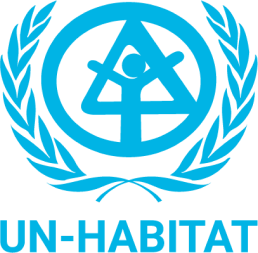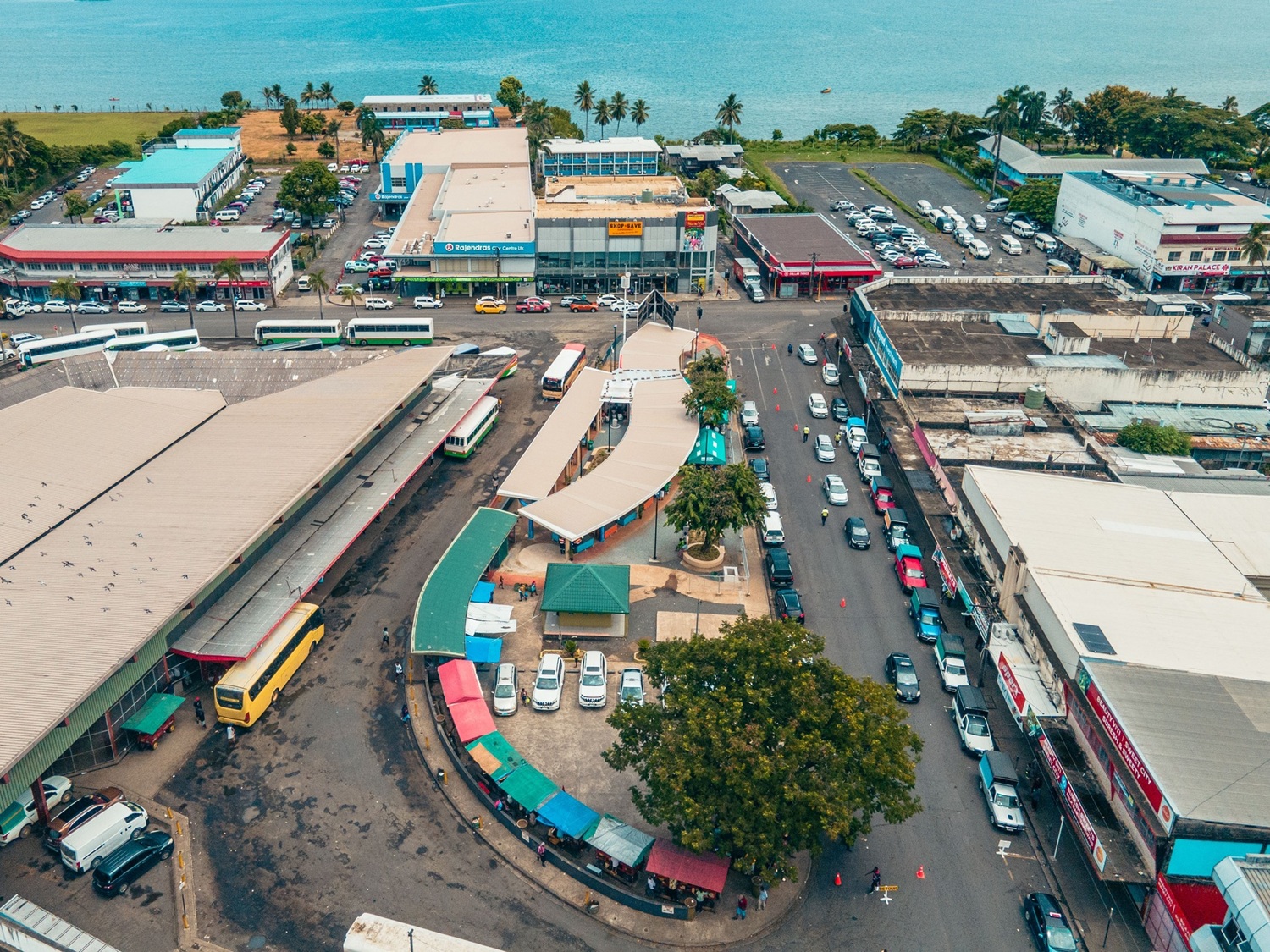Background
The joint programme titled ‘Accelerating Multi-level Action for SDG Localization in Fiji’ aims to enhance development planning and governance for the localization of the SDGs in Fiji, fostering inclusivity, sustainability, and improved livability in urban areas through stakeholder engagement and capacity building.
The joint programme focuses on accelerating the localization of Sustainable Development Goals (SDGs) in Fiji through multi-level governance and stakeholder engagement. It enhances the integration of SDGs into municipal development plans, builds capacities among local actors, and supports the implementation of Fiji’s 2023 Voluntary National Review recommendations. Significant achievements include the development of a 10-year SDG-centered plan for Suva, with direct benefits to local governments and communities, reaching numerous individuals, particularly marginalized groups. Overall, the programme contributes to improved livability, inclusivity, and sustainability in urban areas, advancing Fiji’s climate resilience and the broader Sustainable Development Goals.
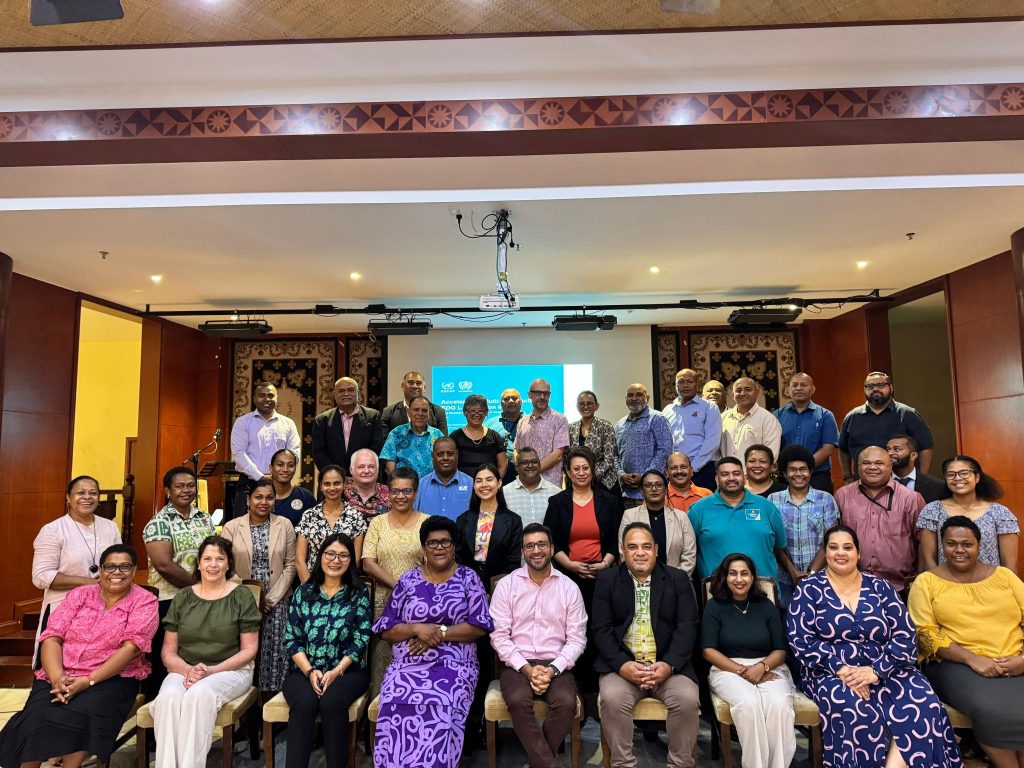
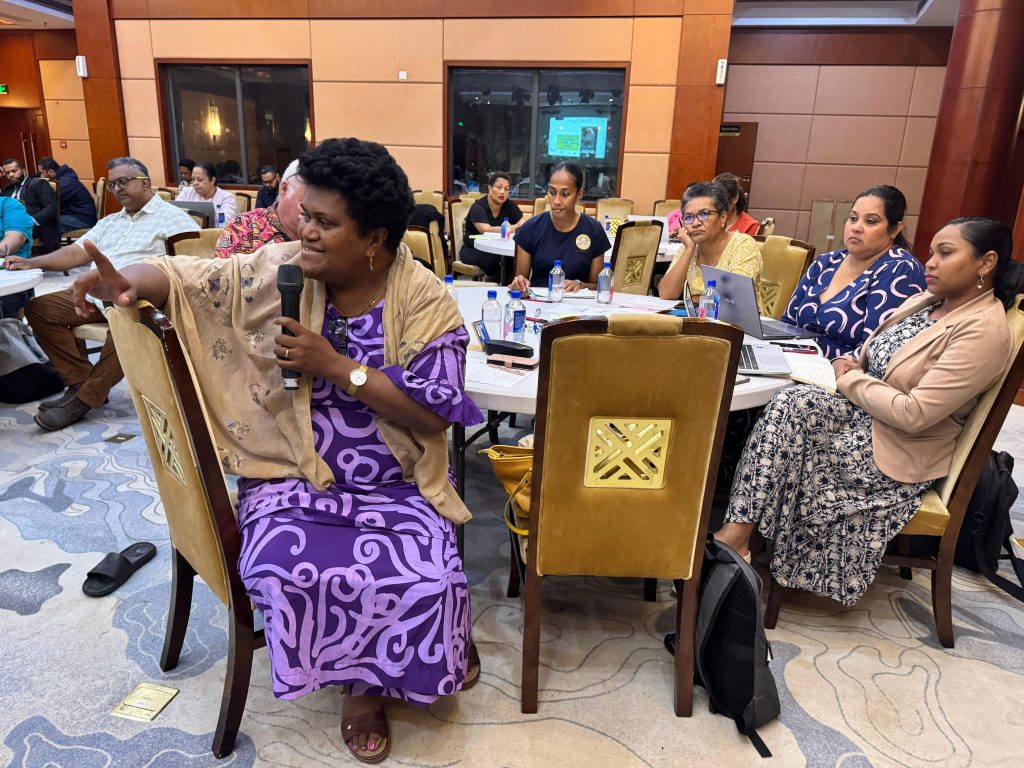
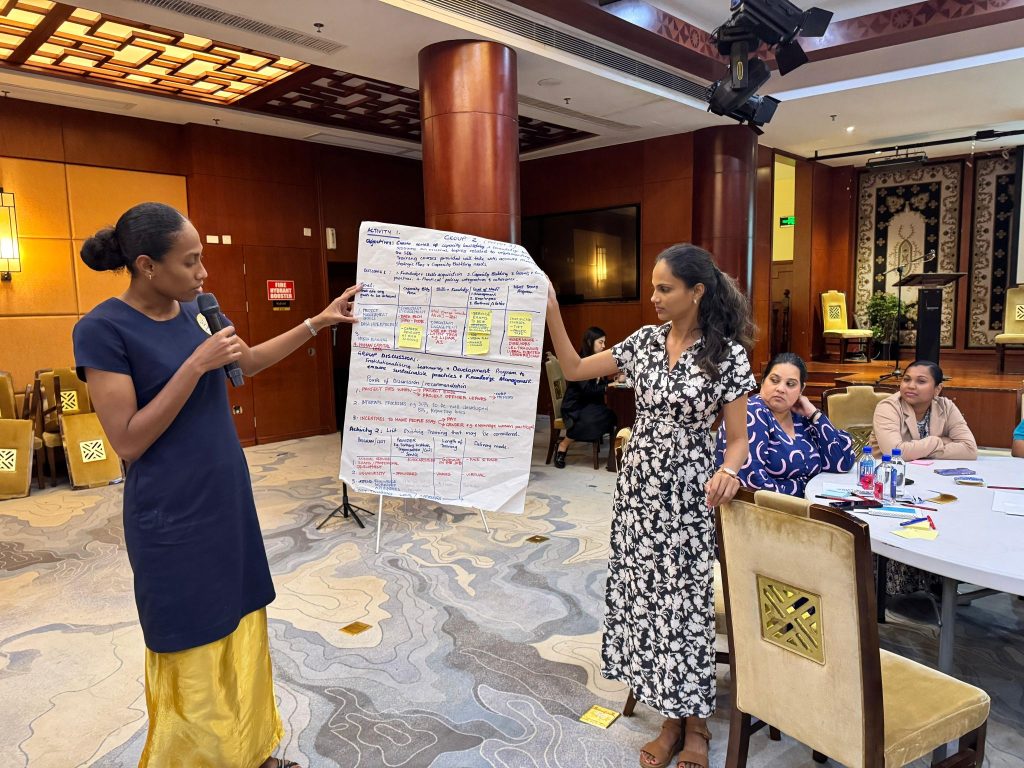
Inception Workshop (Suva, December 2024)
Objectives
The overall objective of this project is to empower cities and towns in Fiji to create more inclusive, resilient, and sustainable communities by effectively integrating SDGs and their key transitions into local development planning, financing and implementation and monitoring supported by enhanced capacity of local stakeholders for no one to be left behind.
The specific objectives of this project are:
- Localising the SDGs through a 10-Year SDG and people-centered Development Plan for Suva
- Scaling Up the Application of VLR Reports in Fiji to Achieve Measurable SDG Localization Results
- Increased National and Local Government Capacity to Implement SDGs Through Multi-level Governance, Planning and Action
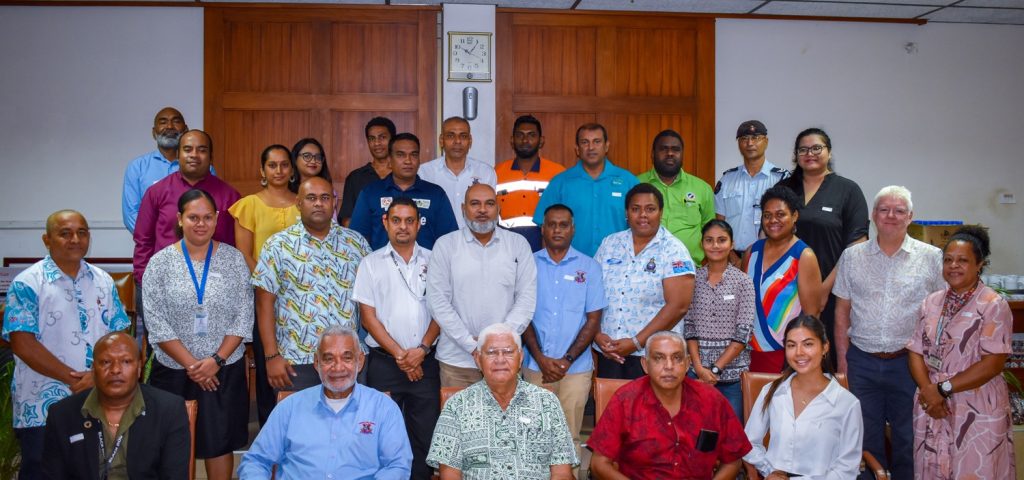
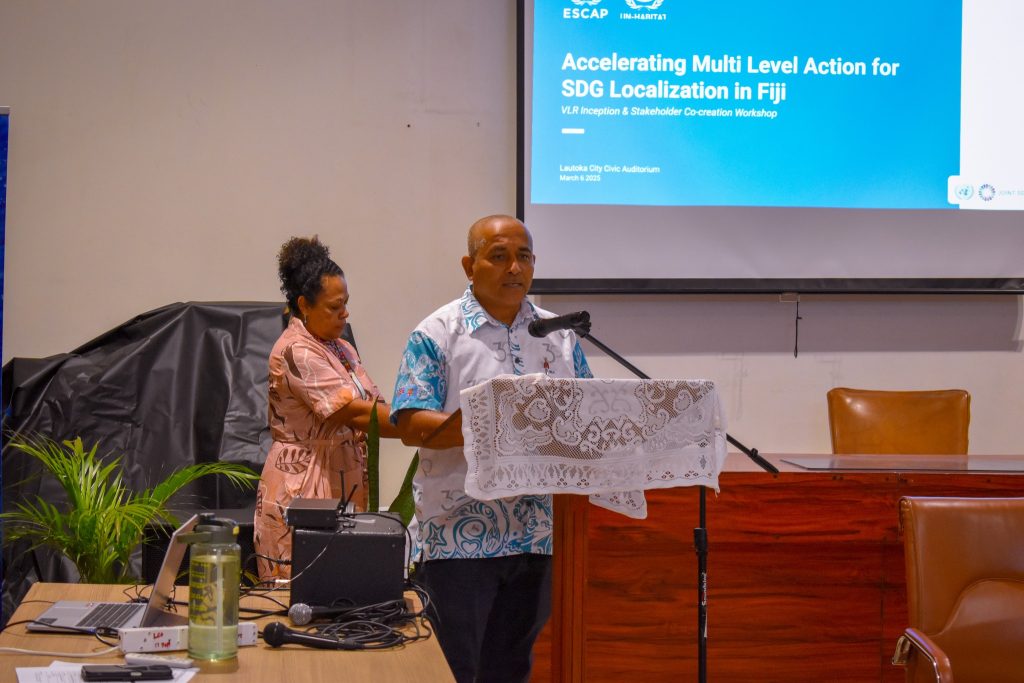
VLR Workshop (Lautoka City, March 2025)
Activities
Under each project output, the planned activities are as follows:
Output 1 – Localising the SDGs through a 10-Year Development Plan for Suva:
This output focuses on embedding the SDGs into Suva’s long-term development planning. Activities include stakeholder mapping, expanding the Greater Suva approach, and organizing “SDG at the Center” workshops. Data collection, scenario building, and integrated planning will be carried out to inform the review of Suva’s Development Plan. The process will be supported through training, capacity building, and awareness-raising initiatives to ensure effective implementation.
Output 2 – Scaling Up the Application of VLR Reports in Fiji:
This output aims to strengthen Fiji’s experience with Voluntary Local Reviews (VLRs) and expand their use as tools for SDG localization. Activities include setting up taskforces, conducting inception workshops, and engaging stakeholders. Targets and indicators will be selected and aligned with national and local priorities, while data will be collected and analyzed to inform the reports. Capacity-building sessions will be delivered, and two VLRs will be finalized, published, and used for advocacy at the national and regional level.
Output 3 – Increasing National and Local Government Capacity for Multi-Level Governance:
The final output emphasizes strengthening institutional capacity for SDG implementation through training and knowledge exchange. A tailored programme design and curriculum will be developed based on needs assessments. Training workshops, peer learning sessions, and experience-sharing activities will enhance the knowledge of government officials. Monitoring, reporting, and knowledge-sharing mechanisms will also be established to ensure sustainability and continuous learning.
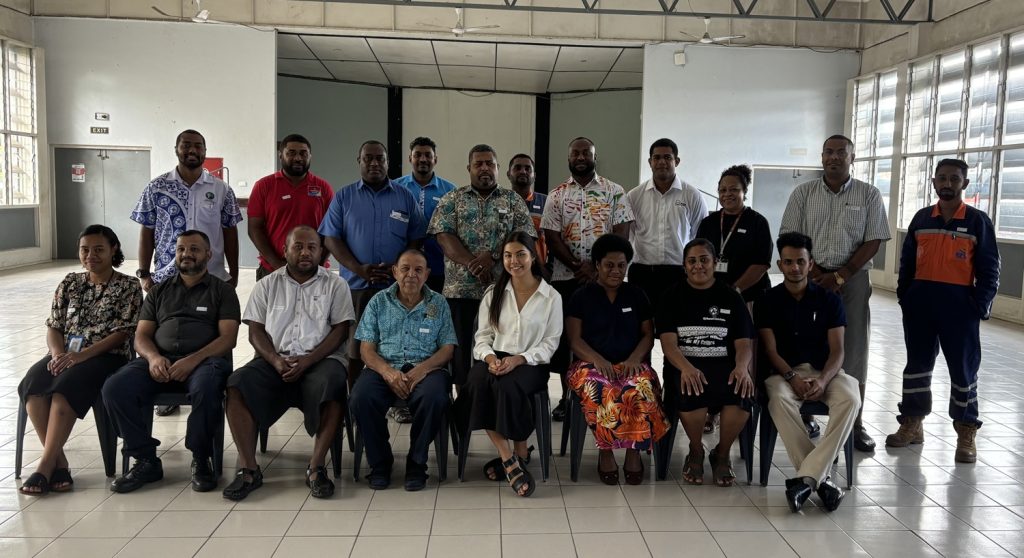
VLR Workshop (Labasa Town, March 2025)
Donors and Key Project Stakeholders
Donor:
Project Steering Committee:
- Co-Chairs: UN Resident Coordinator Office (Fiji, Solomon Islands, Tonga, Tuvalu, and Vanuatu), Fiji Ministry of Local Government
- Participating United Nations Organization (PUNOS): UNESCAP (lead) and UN-Habitat
- Participating Municipal Councils: Suva City Council, Lautoka City Council, Labasa Town Council
- Non-UN Partners: Melbourne Center for Cities, Australian Volunteer International
Relevant Links
Featured in:
- Pacific Pioneers: How Fijian Cities and Towns are Shaping a Sustainable Future (Article published by UNRCO Pacific and ESCAP)
- Suva Makes History with Launch of First-Ever Pacific VLR Report (Article published by Suva City Council)
